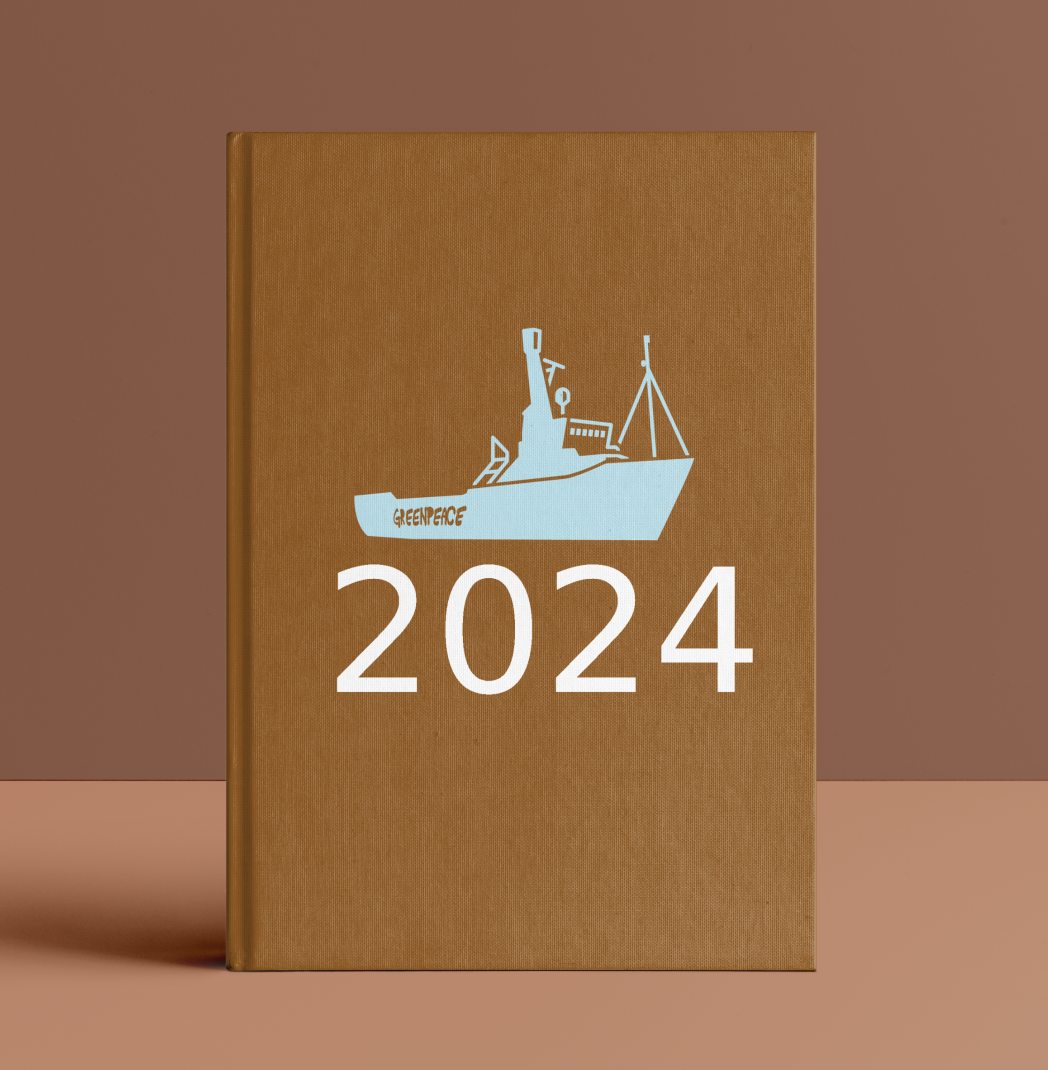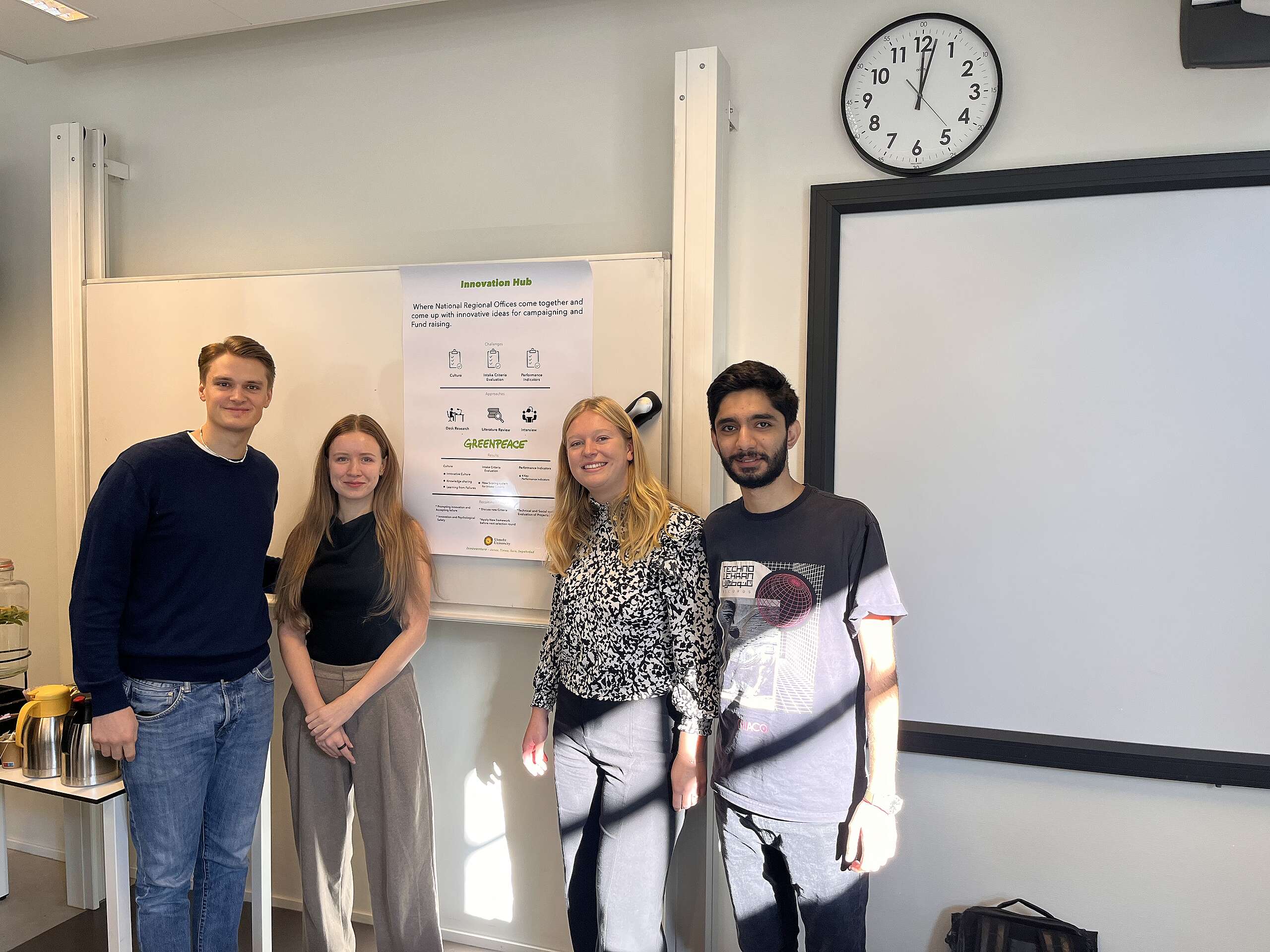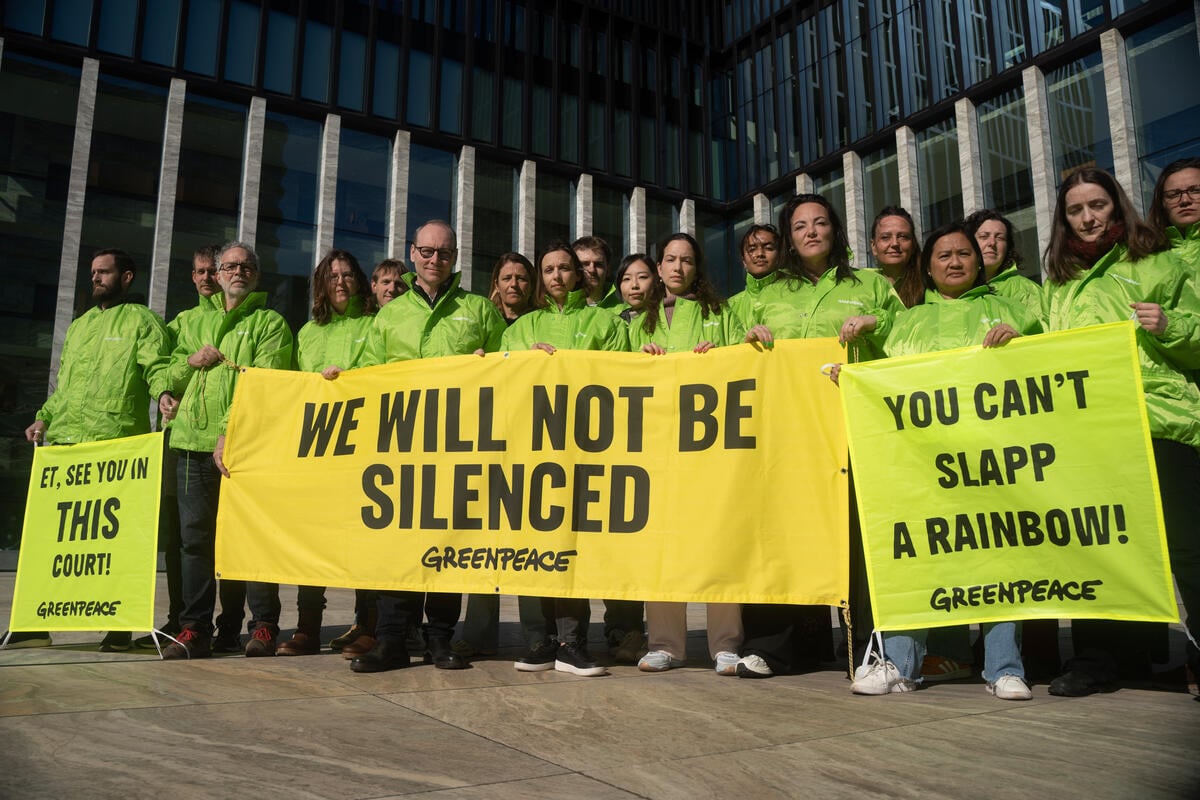When faced with not one but two lawsuits, with claims totaling more than a billion dollars, you take strength from knowing that you did nothing wrong and your friends stand with you. We are grateful to all our supporters for standing by us, for being at the core of the work of Greenpeace International last year and we want to take a moment to share our 2017 Annual Report with you and celebrate our collective achievements.
But we also want to look ahead. The need to slow the pace of climate change and biodiversity loss grows ever more urgent. We are in a time when activism is under increasing attack, but it is also a time of great change and even greater potential. We believe that together we can realise that potential.
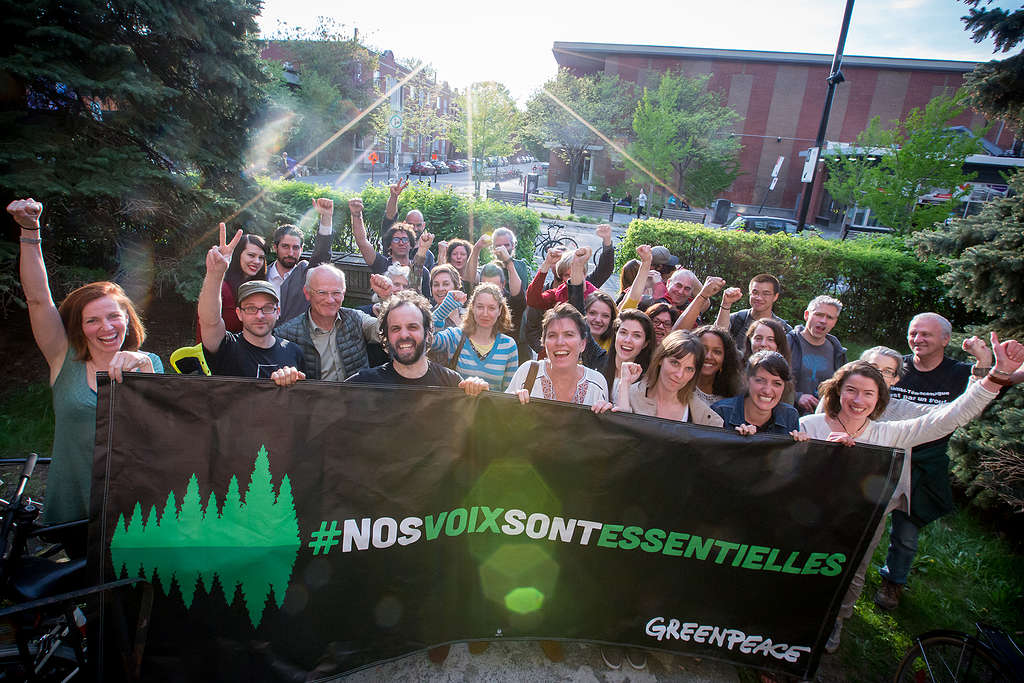
Outside the Montreal office, Greenpeace Canada stands in solidarity with the message #OurVoicesAreVital to unite against Canadian logging company Resolute’s multiple lawsuits to stifle free speech and the organisation’s work to protect the Great Northern Forest in Canada.
In May 2016, Resolute Forest Products sued Greenpeace International and Greenpeace USA in the US for nearly CA$300million, having already sued Greenpeace Canada in 2013 for CA$7million. The judge threw out the case, but the company immediately amended and refiled its complaint.
Energy Transfer Partners also sued Greenpeace International and Greenpeace USA for $900million, because of our support for the Indigenous-led movement at Standing Rock protesting the Dakota Access Pipeline.
It is clear that such extreme claims are intended to silence our voices, but they have not and will not do so.
Our work in 2017
Mayor Jerry Natanine spoke up for communities everywhere after the Canadian Supreme Court agreed with the people of Clyde River that fossil fuel companies do not have the right to destroy their waters and land for profit. “Like all people, we want economic opportunities to flow into our communities. But we know that we are part of the land, and an economy that destroys the earth destroys ourselves.”
Countries, states and cities are echoing that wisdom, committing to phase out coal by 2030. They could not have failed to notice the #breakfree climate actions, coordinated across 60 countries and driving hundreds of protests. As the demand dried up, so did the money – with global financial institutions divesting from coal, oil and gas.
Banks and financiers also stopped funding forest destruction in Indonesia and the Democratic Republic of Congo.
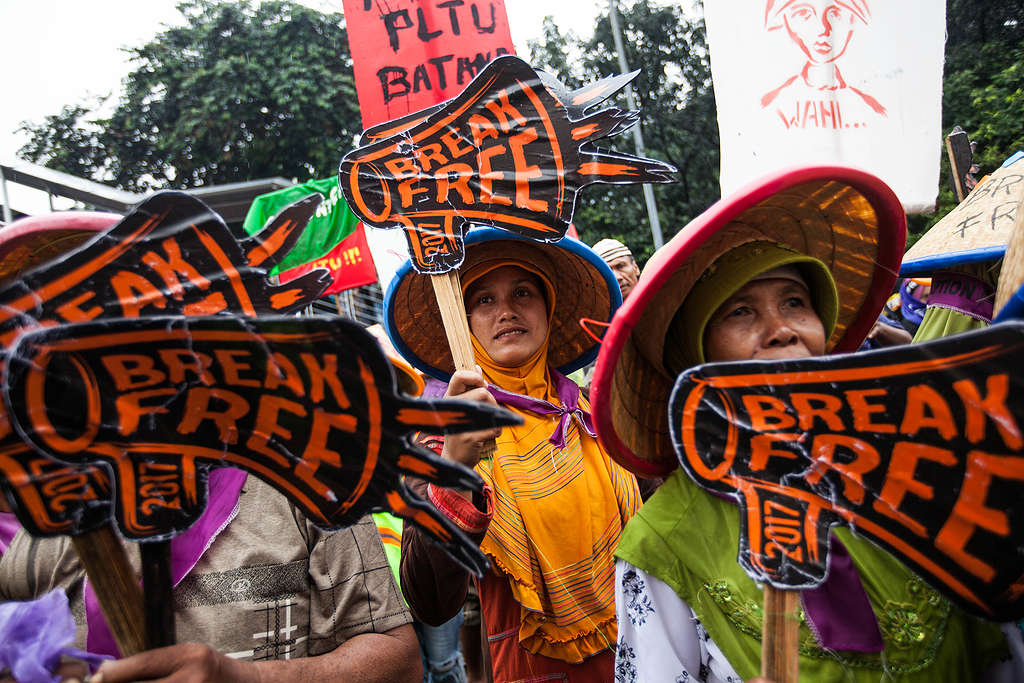
Farmers gather in front of the Corruption Eradication Commission building during a march of the Break Free 2017 event in Jakarta.
Investigating and exposing destructive and corrupt practices is a crucial part of our work. Greenpeace International coordinates training and development of expertise and specialist skills across the global organisation. In 2017 we supported Greenpeace Netherlands in using those skills to show the truth behind global trade deals from Europe to Asia and the Americas, that were negotiated without real consultation, designed for profit not people or planet. The lack of transparency or accountability is the polar opposite to the 10 Principles for Trade published by Greenpeace EU, which shows how our global economy can flourish and still be fair, still respect human rights and the environment.
Also in 2017, as part of its coordination and enabling role for all Greenpeace offices, and in keeping with our agreed ways of working outlined in our Framework document, Greenpeace International provided strategic advice and support to many national and regional offices. We are proud to be able to highlight some of their achievements here.
Changing the way we produce, consume and reuse our resources is a vital step in putting less stress on our planet, but changing the way we think about consumerism will fast track the change we want to see. So we were delighted when tens of thousands of people across six continents took part with multiple Greenpeace offices in 186 different events as part of Make SMTHNG week and rediscovered the value of creating instead of consuming.
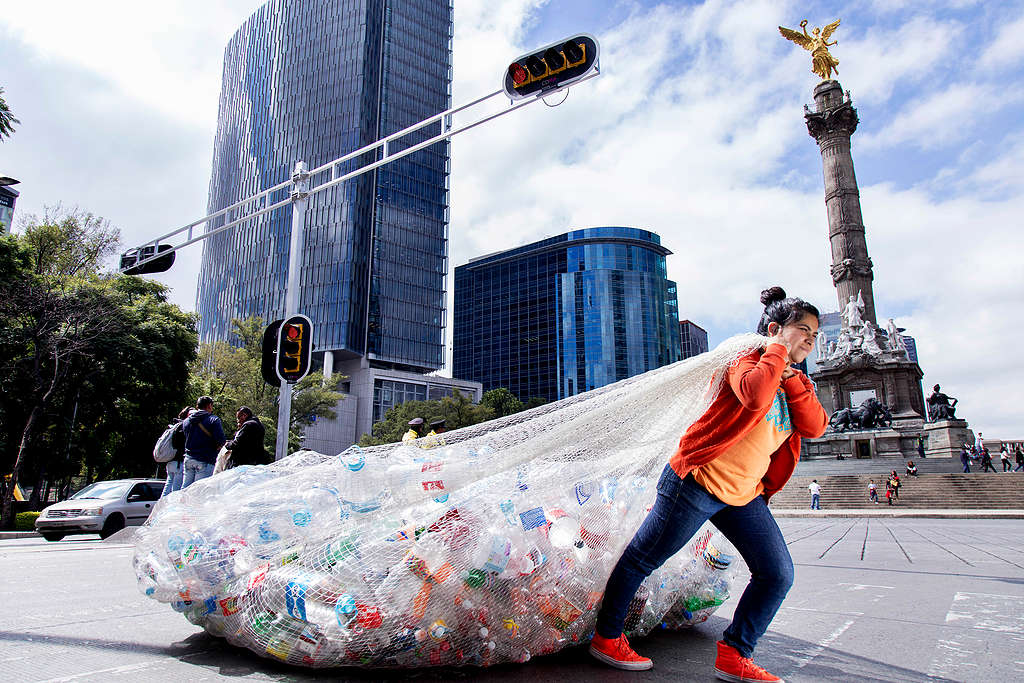
Protest against plastic consumption in Mexico. In Mexico, each person uses an average of 48 kilos of plastic per year.
Across the globe, Greenpeace offices have been working to stop the ocean-destroying Thai Union fisheries company, prompting it to finally deliver a sustainable policy promise from the company head Thiraphong Chansiri: “Thai Union has fully embraced its role as a leader for positive change as one of the largest seafood companies in the world.”
Greenpeace EU drove the campaign against glyphosate in Europe, including the fastest European Union petition to reach a million signatures. The infamous pesticide is a “probable” cause of cancer according to the World Health Organisation and poses high long-term risk to birds and mammals.
Greenpeace Brazil, as part of a broad coalition, delivered a 1.5 million-signature petition to save an area of the Amazon the size of Denmark from mining companies.
The wasteful throwaway mindset was clearly on display within the IT sector with Samsung’s plans to just dump millions of controversial combusting Galaxy phones. We were pleased that our campaign pressure forced a change of policy on this issue, but they and the whole tech industry must do more to change their entire production processes and ethos.
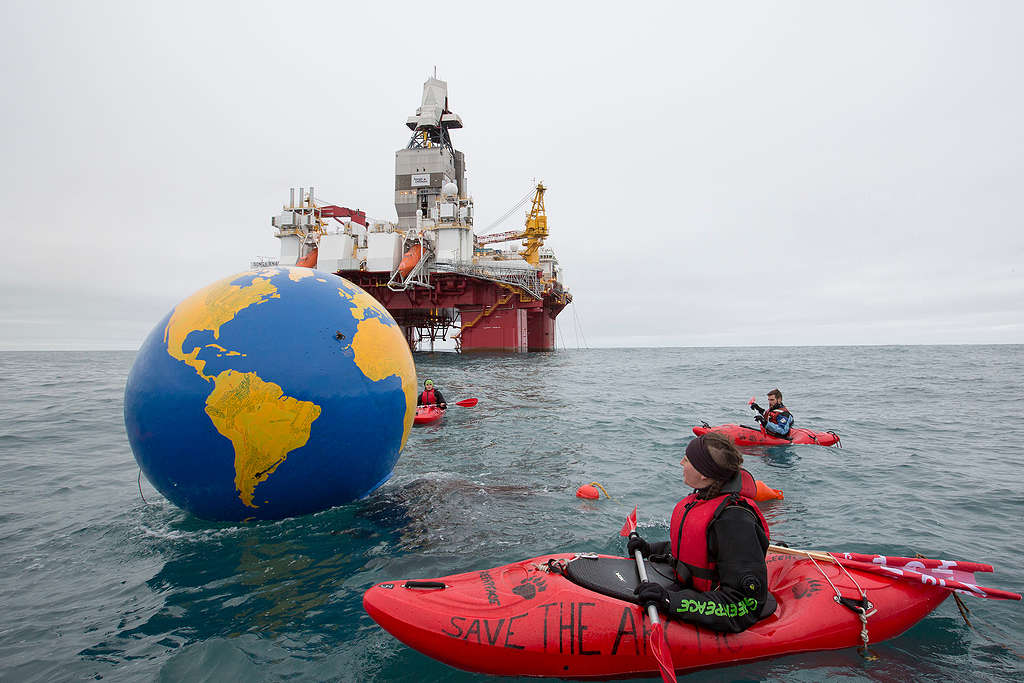
The huge globe features messages from people around the world urging the Norwegian government to end its Arctic oil expansion.
These are just a small number of the successes we saw in 2017 and we could not have done it without you. You can read more here.
At a time when many societies are becoming less tolerant, it is vital that Greenpeace’s ideals of diversity, inclusion, openness and equality are reflected in our global organisation as well as our work. We have been especially awed by the rapid rise of the #metoo movement and are working to ensure it becomes rooted in our organisational DNA. We have sometimes fallen short of that goal, but we are committed to make our working environment one that we can all be proud of.
Behind the scenes
There are many facets of Greenpeace International’s work that will also never make the headlines, but are vital to ensure we have a strong global network that can address the ever-more urgent issues of climate change and biodiversity loss. So let’s take a moment to peek ‘under the hood’ and highlight some of the unseen activities of 2017.
At Greenpeace International in 2017 we coordinated the development and adoption of longer term campaign plans and provided leadership to realising the global goals of speeding the end of the coal and oil era; protecting biodiversity on land and at sea; and shifting mindsets toward a more sustainable and equitable planet. We provided training programmes and developed centres of expertise across all kinds of areas including IT, financial planning and provision, work relating to our people and culture, and systems to evaluate and learn from our work. The Greenpeace International Laboratory, based at Exeter University in the UK, provides robust scientific advice and investigation for our global campaigns and individual offices.
Greenpeace International also manages our iconic roving ambassadors – the Greenpeace ships – and in 2017 nearly 85,000 of you visited our vessels in nearly 100 port visits from Greenland to India, the Americas to East Asia, the Amazon to Africa.
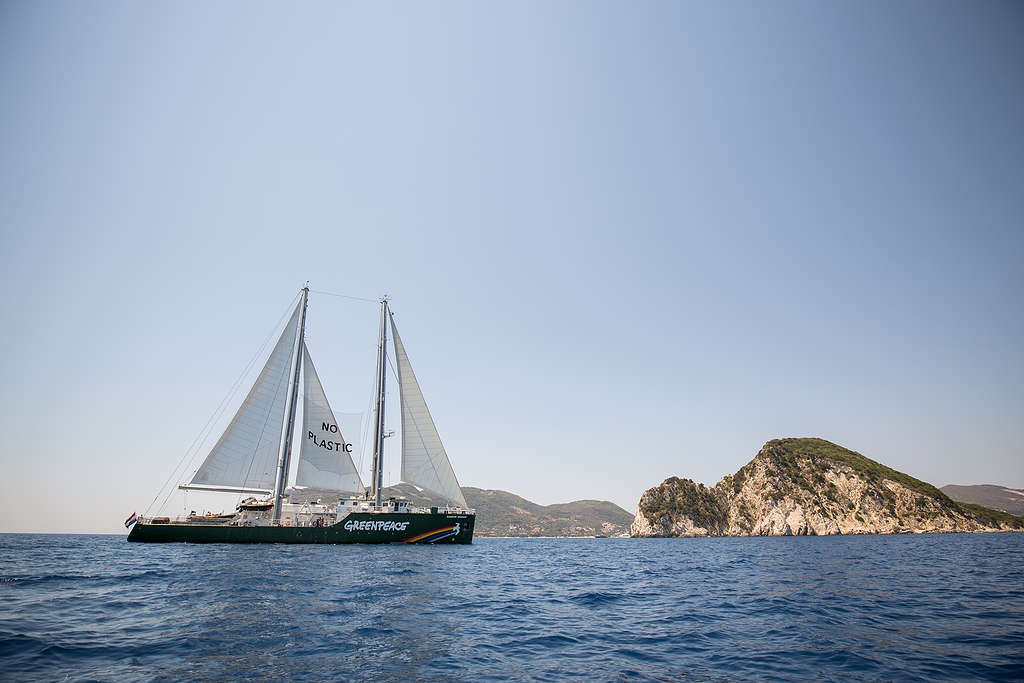
The Rainbow Warrior starts its Greek leg of the plastic-free Mediterranean tour, aiming to promote solutions to end our single use plastic addiction.
Not everything we do makes a headline. But everything we do has been made possible through your support. Millions of you added your name, your voice, your presence and your passion to petitions, actions, phone calls, emails and marches across the globe, standing up for people and the planet.
We hope that you will be as inspired as we have been by the challenges and achievements we shared in 2017, and will continue to work together with us to create a just, equal, green and peaceful planet.
Bunny McDiarmid and Jennifer Morgan are the Greenpeace International Executive Directors. Ayesha Imam is the Greenpeace International Board Chair.

